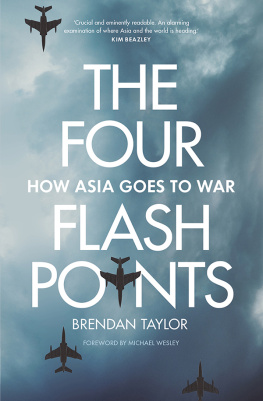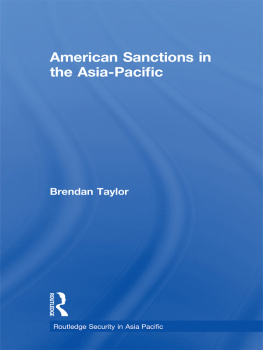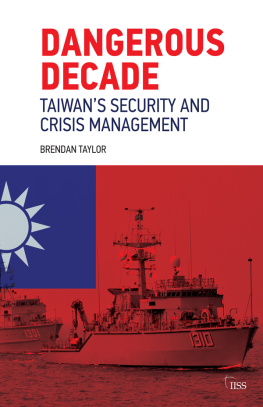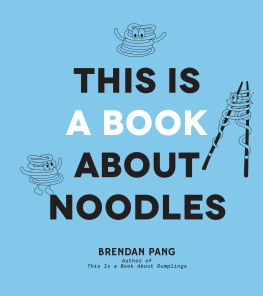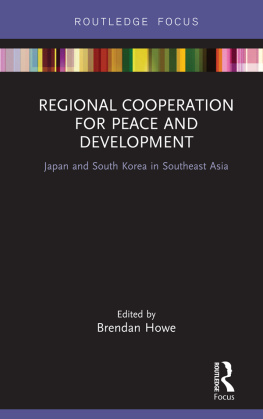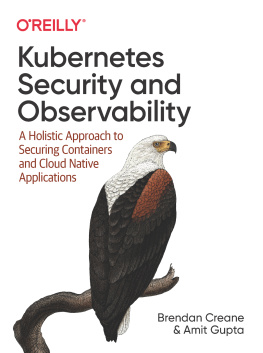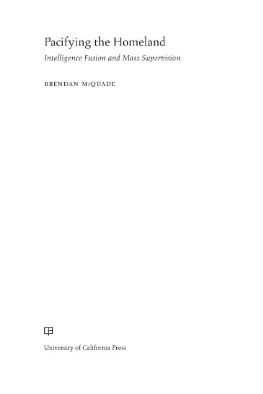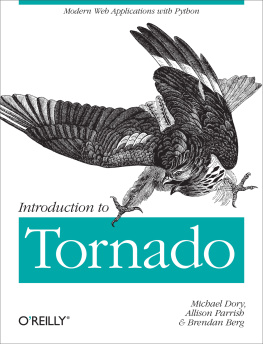PRAISE FOR THE FOUR FLASHPOINTS
The map of Asia is dotted with flashpoints, places where national interests overlap and war could all too easily break out. In this informative and carefully argued volume, Brendan Taylor surveys the most explosive of these points, assessing the risks posed by each and proposing ways to damp down the danger that they could someday erupt into conflict. There are valuable insights in The Four Flashpoints for strategists, scholars and concerned citizens alike.
Aaron L. Friedberg, professor of politics and international affairs at Princeton and former deputy assistant for national security affairs in the office of the US vice-president
We all know where the most dangerous flashpoints in Asia are, but Brendan Taylor has gone further than anyone in illuminating why they are so dangerous and how we might avoid conflict. He has produced the most gripping scenarios for major power war in Asia in print as well as the strongest case for the wise statecraft we will need to keep the peace.
Michael J. Green, senior vice-president for Asia at the Centre for Strategic and International Studies and author of By More Than Providence: Grand Strategy and American Power in the Asia Pacific since 1783
This book is a clear, calm, rigorous and highly readable examination of the flashpoints that make Asia so dangerous today. It explains how they evolved, why they matter and how they might blow up. The Four Flashpoints is the perfect guide to the looming perils of the Asian Century.
Hugh White, professor of strategic studies at the Australian National University and author of Without America: Australia in the New Asia

Published by La Trobe University Press,
an imprint of Schwartz Publishing Pty Ltd
Level 1, 221 Drummond Street
Carlton VIC 3053, Australia
www.blackincbooks.com
Copyright Brendan Taylor 2018
Brendan Taylor asserts his right to be known as the author of this work.
ALL RIGHTS RESERVED.
No part of this publication may be reproduced, stored in a retrieval system, or transmitted in any form by any means, electronic, mechanical, photocopying, recording or otherwise, without the prior consent of the publishers.
La Trobe University plays an integral role in Australias public intellectual life, and is recognised globally for its research excellence and commitment to ideas and debate. La Trobe University Press publishes books of high intellectual quality, aimed at general readers. Titles range across the humanities and sciences, and are written by distinguished and innovative scholars. La Trobe University Press books are produced in conjunction with Black Inc., an independent Australian publishing house. The members of the LTUP Editorial Board are Vice-Chancellors Fellows Emeritus Professor Robert Manne and Dr Elizabeth Finkel, and Morry Schwartz and Chris Feik of Black Inc.
9781760640378 (paperback)
9781743820261 (ebook)
Cover design by Regine Abos
Text design and typesetting by Tristan Main
Maps by Alan Laver
Cover image shauni/Getty Images
For Jenny
FOREWORD
The centenary of the outbreak of World War I provided the occasion to compare events in 1914 and 2014. New histories, such as Christopher Clarks The Sleepwalkers and Margaret Macmillans The War That Ended Peace, highlighted how the great powers had stumbled, mistakenly, into a war they either didnt want or thought they could win easily. Several commentators speculated about the parallels between the great powers in 1914 and those of today, particularly in Asia, where mounting rivalries and local disagreements have the potential to provoke much wider conflict, but a strange sense of complacency about this possibility appears to rule supreme.
In 2018, as we celebrate the centenary of the Great Wars end, that complacency hasnt dissipated. US President Donald Trumps and North Korean leader Kim Jong-uns exchanges of bombast and diplomatic posturing make for entertaining viewing, but few seriously believe that a major war is imminent. As Brendan Taylor argues in these pages, this pervasive absence of anxiety about Asias points of tension has resulted in half-hearted efforts to find genuine resolutions to or even conflict-stabilising mechanisms for them. Arguably, the major reason for our lack of unease is that war in Asia is increasingly hard for us to imagine, because peace has prevailed in this region for so long.
There are at least four reasons why Asias rivalries are more threatening to global peace and order than other regional rivalries. The first is quite simply capacity. Asias explosive economic growth is providing its great powers with the means to initiate and wage devastating conflict against one another. Arms purchases by all major Asian powers have increased markedly over the past quarter century, even as, due to the growth of their economies, the proportion of their gross domestic product devoted to arms has fallen. The imperative is to expand, particularly given what the neighbours are buying. None seems to have even come close to a sense of adequacy. With each passing year, the arsenals of the Asian powers are deepening and becoming more sophisticated; their war planning and military exercises are proceeding apace.
Second, Asias centrality to the global economy and global information flows means that a major conflict in this region will cause disruption and devastation in all other regions. So intense would a full-blown conflict in Asia be that the combatants would seek to weaken their adversaries across three undefendable commons: the worlds maritime highways, cyberspace and outer space. Control of sea lanes would allow combatants to prevent their enemies from resupplying, particularly with energy, during wartime. Cyberspace and outer space hold the keys to blinding opponents surveillance and control systems. Major and ongoing disruptions to these three commons, each so critical to the operation of the global economy, would cause incalculable economic damage and distress.
Third, Asian powers inexperience in recent decades in waging major conflicts arguably makes it more likely that they will stumble into one. For years, Asias great powers have been acquiring sophisticated weaponry without the chance to test its capabilities and vulnerabilities, or to refine military doctrine governing its use, which has likely led to significant misperceptions of how powerful these great powers are. If such misperceptions are conservative, they can be a stabilising influence; if not, they can be very dangerous. Constant growth and greater sophistication of weapons systems can make deterrent calculations very difficult to make and communicate to rivals.
Finally, even as Asias countries prosper economically, the emotive forces of history and nationalism are becoming ever more powerful across the region. Governments are burnishing comparisons to past periods of national greatness as a way of bolstering their legitimacy. School curricula inculcate both bitter memories and unflattering stereotypes of neighbours. Seemingly unimportant reefs and islands, or remote borderlands, have become imbued with a sense of national pride and the legitimacy of the state.
For these and a host of other reasons, Brendan Taylors The Four Flashpoints deserves very close reading. As the first comprehensive, comparative account of the rivalries that attend the Korean Peninsula stalemate, the competition over the Senkaku/Diaoyu islands, the South China Sea stand-off and the status of Taiwan, this book provides a clear menu of the geopolitical hotspots that should most concern world leaders and citizens. While there are plenty of books that examine the



